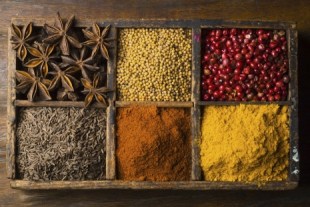Cooking to preserve nutrients
Some foods need to be cooked, such as meat, potatoes and red beans. Depending on the way that food is cooked, there may be considerable loss of nutrients. The longer and the hotter we cook food, by any method, the greater the nutrient loss. Overcooking also swells starches and softens food, which speeds up digestion and absorption, increasing the GI. Simple tips to reduce nutrient loss include:
- Serve fresh and unprocessed (raw) fruit and vegetables when possible.
- Cut and cook vegetables in large pieces (to minimize surface area for loss).
- Prepare vegetables as close to cooking time as possible.
- Cook vegetables until just tender to retain nutrients, vibrant colors and texture. For most vegetables, changes in color provide clues about nutrient loss. They are usually done when at their brightest.
- Use the minimum amount of water to keep food moist, but don’t cook without it, even in a frying pan.
- Avoid long exposure to heat or high heat. For example, frying at high temperatures destroys most heat sensitive vitamins.
- Cook what we need to eat, and then eat it. The longer we leave it around, the fewer nutrients it will have.
- Rinsing rice and pasta is unnecessary and results in the loss of some nutrients. Similarly, browning your risotto rice before adding water can reduce its nutritional value.
- Avoid microwaving vegetables as research shows important phytochemicals are lost in the process. Instead, lightly stir-fry or steam your vegetables.
Cooking to avoid toxic byproducts
The cooking process generates new chemicals that we perceive as flavor, aroma and texture. These add to the experience of eating, but may also generate a range of toxic compounds.
The most well known of these include the cancer-causing polycyclic aromatic hydrocarbons generated in cooked meat, acrylamide in baked products and AGEs, which form when sugars and fats in food chemically react with protein to result in browning.
How to avoid trans fat generation
Another important group of toxins generated in cooking are the trans fats. For example, prolonged deep frying can transform oils into trans fats, which are then transferred to the food. Examples include snack foods (e.g. rice cakes, chips, biscuits), fried foods and baked goods. The best way to avoid trans fats is to read the label and avoid foods containing them, or choose foods in which the processing has specifically prevented their formation. For example, all margarine in Australia is now free of trans fats, as are most global fast foods (mostly because of the threat of litigation). It is best to avoid deep frying at home, even if we use oil free of trans fats and change it regularly.
Use spices for flavor
Natural sources of flavor add their own unique benefits. For example, spices have a range of healthy influences. Rosemary, oregano, turmeric and curcumin have strong antioxidant contents. Chilli and black pepper boosts circulation. Fennel is a digestive aid, while cinnamon improves sugar metabolism. So why not put some spice back into your life and cook your meal a little less tonight?
Last Reviewed 02/Mar/2014
Dr Merlin Thomas
Latest posts by Dr Merlin Thomas (see all)
- How to increase DHEA levels - 28/09/17
- Testosterone supplement benefits & risks - 11/07/17
- Health effects of tea & coffee - 10/07/17
